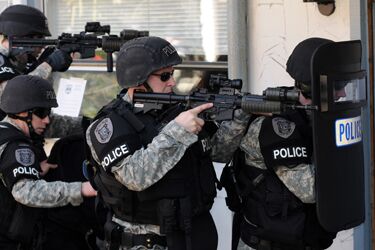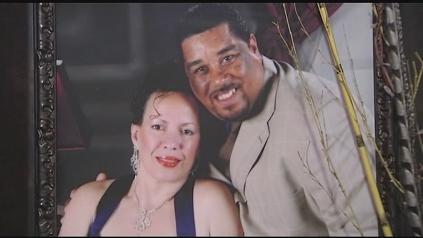Do you remember when policemen were called “peace officers”? I do. In the small West Virginia town where I grew up, police work consisted mainly of community-oriented engagement, not unlike what you might see on The Andy Griffith Show.
One night, when I was about 17, I was driving home from a high school party. I was tired and swerved to miss an oncoming vehicle. That vehicle happened to be driven by a local cop. He turned around, flashed his lights, and pulled me over.
What happened next is a textbook reminder of how kinder and gentler that bygone era was. When the cop saw that I was just a kid, he asked me how far away I was from home. When I told him that I lived just around the corner, he offered to follow me to make sure I got there safely. He didn’t demand that I submit to a sobriety test or a warrantless search of my vehicle. He simply wanted to make sure that I got home safely.
Free Wealth Protection Insights
Enter your email below to receive our weekly briefings on better ways to preserve your wealth, legally reduce your tax bill, and better protect what you’ve worked hard to build.
The Nestmann Group does not sell, rent or otherwise share your private details with third parties. Learn more about our privacy policy here.
PLEASE NOTE: This e-series will be delivered to you via email. You should receive your first message minutes after joining us. By signing up for this course, you’ll also start to receive our popular weekly publication, Nestmann’s Notes. If you don’t want to receive that, simply email or click the unsubscribe link found in every message.
A few decades later, things are very different. Men dressed like the guys in the image below now patrol America’s cities. How would you react if this group of armed men pulled over your vehicle or detained you on the street?

If you don’t display the proper degree of submissiveness, there’s a real chance you’ll die, on the spot. If you think I’m exaggerating, I’m not. Take the example of Luis Rodriguez (shown here with his wife Nair) – one of the latest victims of “death by cop.”

On Saturday, February 15, Luis, accompanied by Nair and their daughter Lunahi, left a movie theater in Moore, Oklahoma. As they walked along, Nair and Lunahi got into an argument. Luis tried to intervene, but a group of cops stopped him and demanded he show an ID.
That’s when Luis made a fateful mistake that cost him his life. Instead of showing his ID, Luis attempted to bypass the officers to stop the argument between the two people he loved most in the world.
In today’s America, police don’t like getting “bypassed.” A group of five officers wrestled Luis to the ground and handcuffed him. The officers kicked and punched Luis in the head as he lay helpless on the ground. When they were finished, it was obvious he was dead. Lunahi later told a local reporter, “When they flipped him over you could see all the blood on his face… he was disfigured, you couldn’t recognize him.”
Lunahi recorded the events with her cell phone’s camera, but naturally, the police didn’t want a video of the incident circulating on the Internet. So after killing Luis, they confiscated Lunahi’s cell phone. Her video now has been released – but it shows only the aftermath of the incident, not the beating itself.
This isn’t an isolated incident. In just the last two weeks, these stories have crossed my desk:
- San Francisco Man Calls 911, Gets Thrown Into Solitary (February 14)
- New York Cop Attacks Man for Video Recording Him (February 17)
- Florida Man Arrested for “Illegal Wiretapping” for Filming Traffic Stop (February 21)
- New Jersey Man Avoids Five-Year Prison Sentence After Dash Cam Footage Clears Him (February 23)
- Texas Jogger in Headphones Knocked to Ground by Cops (February 25)
These incidents took place in five different states and in different geographic regions of the US. Police brutalization of ordinary citizens is obviously a nationwide phenomenon.
But it’s not especially surprising, considering recent history. Beginning in the 1970s, the federal government initiated a nationwide “War on Drugs.” To lure state and local governments into its anti-crime agenda, the feds began giving them billions of dollars’ worth of surplus military hardware, along with billions more in direct federal grants.
After 9/11, efforts to make America’s cops look, act, and fight like soldiers ratcheted up another notch. Millions of pieces of battlefield equipment – tanks, automatic weapons, armored personnel carriers, and more – flowed to domestic police agencies.
The strategy worked. For instance, the use of Special Weapons and Tactics (SWAT) teams –the classic example of police militarization – soared. In 1980, SWAT teams were deployed 2,884 times nationwide. By 2010, the number had soared to 50,000 or more annually.
Initiatives like the federally funded “fusion centers” that link local law enforcement agencies to federal databases train police to view citizens as potential terrorists. Is it any wonder that US police believe, like James Bond, that they have a license to kill?
Of course, the militarization and increasing brutality of police against unarmed citizens is just one example of America’s rapid descent into a totalitarian state. We now submit willingly to warrantless eavesdropping of our communications, roadside strip searches, and 24/7 monitoring of our financial transactions.
Many of us try to resist these trends in our own way, whether by electing representatives who promise to rein in the police state or by taking to the streets. But the problem is not going away. It’s intensifying, if the news accounts I read daily are any indication.
Perhaps it’s time to consider opting out of the police state.
Mark Nestmann
Nestmann.com













